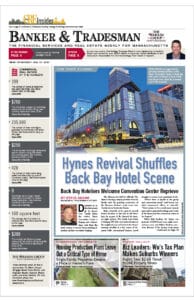On Dec. 2, 2014, the Massachusetts State Supreme Court heard Monnell v. Boston Pads. This is the first case to be heard at the State Supreme Court level addressing whether real estate agents who are currently independent contractors should be reclassified as employees. The ruling in Monnell, which is expected next spring, may very well be a bellwether for other litigation attempting to overturn independent contractor status as an option for real estate salespersons.
At the heart of Monell v. Boston Pads (as well as California cases Barasani v. Coldwell Banker, Cruz v. Redfin and Galen v. Redfin is an inherent conflict between the real estate laws requiring brokers to supervise their agents and the labor laws prohibiting certain types of oversight unless the individual is an employee. Attorneys have used this conflict to allege that current brokerage practices violate labor laws.
Moreover, both sides in Monnell explained that the definition of what constitutes an independent contractor varies depending upon which law is being considered. Different statutes (for tax, unemployment taxes and workman’s compensation) define “independent contractor” differently.
The six agent plaintiffs in Monnell alleged that they were employees under the Massachusetts labor laws governing independent contractors. The broker defendants allegedly exercised strict controls over the plaintiffs, including requiring them to be in the office at specific times, making them clean the office and prohibiting them from working on their own files during those times. The plaintiffs further alleged that the defendants failed to pay them minimum wage plus overtime for hours worked over 40 hours per week.
The Three-Prong Test
Like many other states, the labor laws in Massachusetts use a three-prong test to determine whether an individual is an employee or an independent contractor. Defense counsel Steve Perry summarized the three provisions as:
Supervision: the individual must be free from “control and direction” in connection with respect to his or her performance.
The agent must act outside the course of the broker’s business, which is “literally impossible.”
The agent “must wear his or her own hat” in terms of being engaged in a profession different from the employing broker (which is also impossible).
In the trial court ruling, Judge Robert Coswell found that “it is difficult to read the independent contractor and real estate statutes harmoniously … This begs the question, how can a real estate salesperson be ‘free from control’ of the broker under the independent contractor statute, where the real estate statute requires that the salesperson ‘be under (the) supervision of (the) broker?’”
Cosgrove decided in favor of the defendants stating that the real estate laws “controlled” (i.e. took precedence over the labor laws) in this case.
The plaintiffs appealed. The Massachusetts Supreme Court agreed to bypass the appellate court and to hear the case.
Plaintiffs’ Arguments
The plaintiffs’ attorney, Hilary Schwab, opened the hearing by asking, “What does outside salesperson mean? Can a salesman who is an employee be paid on a commission only basis? The term ‘outside salesperson’ is not defined in the real estate statute. Therefore statutory construction dictates you must go to where in the law it is defined.”
She went on to argue that the commission only provisions of the minimum wage law only “provide an exemption for overtime, but not for minimum wage.”
Justice Robert J. Cordy challenged Schwab’s assertion: “So commission only doesn’t mean commission only?”
Schwab’s response was, “The minimum wage law contains no exemptions for commission employees.”
Justice Barbara Lenk inquired, “Is there any time that that agents can be independent contractors?”
Schwab started to respond by saying, “this case goes far beyond what is required by the real estate law …”
Lenk interrupted, “But who draws the line? Why doesn’t the broker get to decide the degree of supervision?”
Defendants’ Arguments
The crux of Perry’s argument was that “the legislature intended that the brokerage industry would have the benefit of hiring independent contractors and not have to pay unemployment insurance, workman’s compensation and have the tax benefits. If they (the brokerage industry) have minimum wages, these fly by the wayside.” Moreover,
“The legislature did not intend to massively transform the industry and give (open the industry up to) these claims that would destroy the industry.”
He further asserted that 87RR should control rather than the labor laws since 87RR specifically outlines the real estate broker’s duty to supervise his or her agents.
Justices’ Responses
Cordy was the most vocal in expressing his disagreement with the plaintiffs’ arguments. Nevertheless, other justices seemed to have issues with the defense arguments.
It’s hard to tell which way Monnell will be decided. Although the decision will be limited to real estate salespeople in Massachusetts, the implications may have far-reaching effects for the entire real estate industry.




